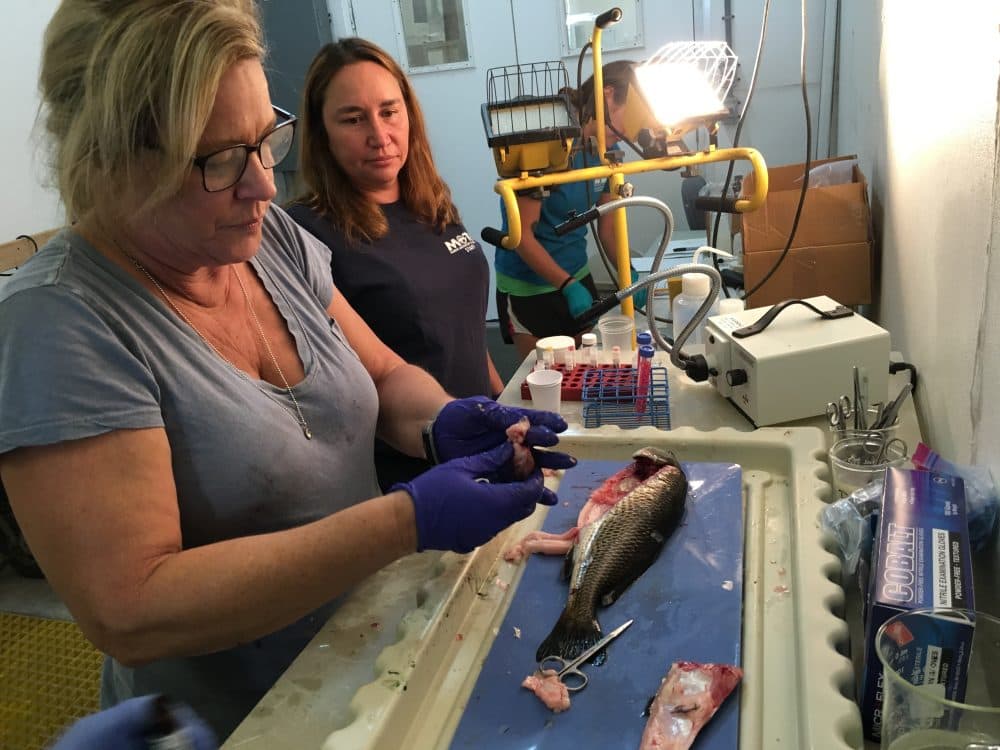Advertisement
In Florida, Scientists Raise Fish To Test Impacts Of Oil Spills
Resume
On April 20, 2010, the Deepwater Horizon oil well drilling platform exploded, spilling millions of gallons of oil into the Gulf of Mexico. The spill is considered to be one of the worst environmental disasters in U.S. history. Fish and plants were killed and entire habitats were damaged, some destroyed.
Scientists continue to study the impact of the oil spill. A team of scientists at the Mote Marine Laboratory in Sarasota, Florida, is raising adult fish and exposing them to oil, to find out how different species are affected. David Levin has our report.
This story was made possible by the C-IMAGE Consortium, Gulf of Mexico Research Initiative and Mind Open Media. You can find the full series, "Beneath The Horizon," here.
This segment aired on April 17, 2017.